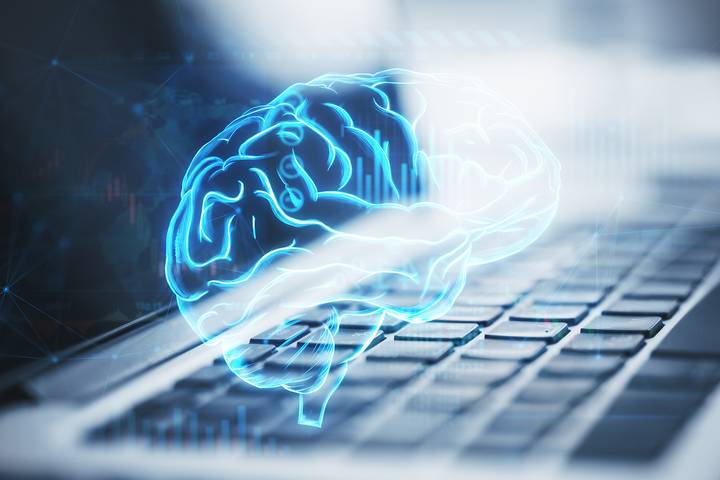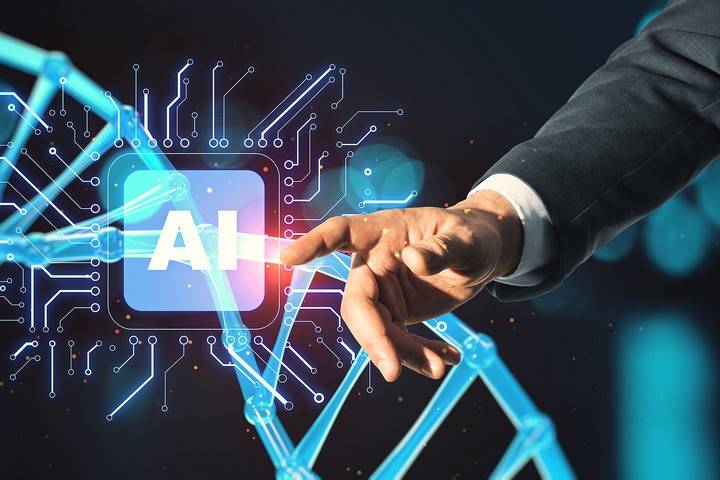Artificial Intelligence (AI) is the improvement of human Intelligence through computerized processes and systems. Technology has for years benefitted the world with great inventions and innovations. Artificial Intelligence seeks to achieve better mental health through various technologies in the current world, which is full of health crises and uncertainties.
Technology has positively affected several aspects of life, including the mental health industry. There are many thriving AI companies to invest in the mental health sector. However, experts should remain cautious about the above risks and work towards managing them. Artificial Intelligence in the health industry aims at improving lives. Ultimately, it can’t replace human doctors and therapists.
Below is an outline that expounds on multiple artificial intelligence trends in the mental health industry.
Trend #1: Artificial Intelligence Mental Health Diagnosis

Research has approved that at least two out of three mental health issues go undiagnosed, but not anymore. A new Artificial Intelligence-powered technology has been invented to diagnose mental health issues at all stages.
The technology can detect someone’s behaviour to check for anger, stress, and anxiety levels. Through motion sensors, the AI models will be in a position to recommend possible treatment or management options where required.
Trend #2: AI Triage Services

Triage refers to an evaluation carried out on patients to determine the type and urgency of treatment for the issue at hand. Artificial Intelligence allows mental health patients to acquire triage services for their problems and receive treatment more professionally and efficiently.
Mental health doctors can now triage the patients severally before administering medication and therapy. AI triage services reduce the number of physical appointments and tests on mental health patients.
Trend #3: Mental Health Management Using AI

Another beneficial trend in the mental health industry is using artificial intelligence-powered technologies to manage mental health. Experts have invented various software programs for managing frustrating feelings, thoughts, and actions.
The program monitors one’s mood and creates a positive environment for affected users. With AI programs for mental health, users’ needs are efficiently attended to in the most personalized way possible.
Trend #4: AI Mental Health Trackers

It’s no doubt that artificial Intelligence has become a game-changer in the mental health industry. Experts have embraced the technology in tracking patients’ responsiveness and well-being after treatment.
Gone are the days when patients would be required to visit the hospital severally for checkups. Doctors can track their patients’ mental health after treatment from a distance, thanks to various algorithms responsible for analyzing, recording, and delivering the results.
Trend #5: Natural Language Processing (NLP)

National language processing is an artificial intelligence branch with the power to understand and analyze how humans talk and speak. This technology is probably what the mental health industry has been missing for years.
Sometimes, it can be hard to get someone undergoing mental health issues to talk and express their feelings and thoughts. However, doctors can now analyze and understand their patients through National Language Processing using computers.
Trend #6: AI Patient-Doctor Engagement Tools

You can admit that everyone desires to stay connected to their doctor without the never-ending hospital trips. The wish is gradually coming true thanks to Artificial Intelligence and its computerized engagement tools. With technology, mental health patients can make phone calls and appointments without physically visiting the hospital.
On the other hand, doctors can provide mental health education, gather information, and offer medical reports online. Additionally, several mobile applications incorporate reminder systems that remind patients about their scheduled medication and physical visits to the hospital.
Trend #7: Using AI to Improve Mental Health Services

As highlighted earlier, Artificial Intelligence boasts plenty of benefits in the mental health industry, including:
- Artificial Intelligence has made mental health treatment more accessible than ever by clearing communication barriers.
- Artificial Intelligence-powered therapy for mental health issues achieves highly efficient results due to the technology incorporated.
- The inventions have supported therapists and other health professionals in the industry.
Artificial Intelligence facilitates more personalized treatment for mental health patients due to the incorporated tools. Also, AI-based mental health treatment is more affordable than traditional systems when patients need to travel to the hospital for appointments, checkups, and other visits. And thanks to artificial Intelligence, the levels of suicide due to mental health issues have significantly reduced.
Trend #8: Using AI Ethically for Mental Health

Several considerations should be made before applying the power of Artificial Intelligence to the mental health industry for more effective results. They include:
- Ethicalness in the usage and transmission of data to maintain boundaries relating to patients’ privacy.
- Cyber-security protection for patients’ health and personal data.
- Incorporation of mental health specialists’ intelligence into the developed Artificial Intelligence programs.
Artificial Intelligence is the light at the end of the tunnel for the mental health industry, but not without several drawbacks, including:
- AI-powered systems work with the data initially fed to them and may incorporate inequality and biases from the data.
- Even with efforts to maintain high cyber security, crooks can still find a way to access the programs.
- Artificial Intelligence-powered programs for mental health have been invented and created by humans and are therefore vulnerable to errors.
Ultimately, AI aims to correct these problems in the long term to make mental health more accessible for everyone.




